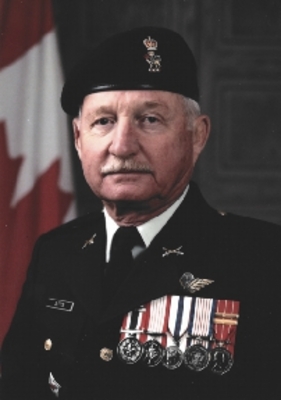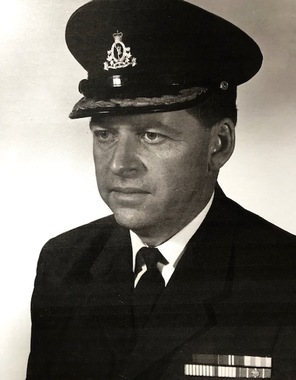Canadian Military Communications human interest stories, and other such things
Saturday, November 28, 2020
Thursday, November 26, 2020
Monday, April 20, 2020
Isabel May McDonald
/arc-anglerfish-tgam-prod-tgam.s3.amazonaws.com/public/R7AEIPTBABBBBMVOWVXCHUZ7HQ.JPG)
Isabel May McDonald is known for her service in the Women’s Royal Canadian Naval Service (W.R.C.N.S.) from 1942 to 1945. The W.R.C.N.S., modeled after the unit of women serving in the British Navy (W.R.N.S), became known as the “Wrens” just like the British model.
Originally from North Bay, Ontario, Isabel studied to become a teacher prior to her service. After graduating from “Normal School,” or teachers’ college, she taught in small, northern Ontario towns. Deciding that she wanted a change of pace, Isabel quit teaching and enlisted in 1942. Shortly afterward, Isabel attended training for the “Wrens” in Galt, Ontario, and then in St. Hyacinthe, Quebec. During her time in training, she learned how to intercept and decipher radio messages, including the high-speed Morse code messages used by the Japanese, known as Wabun code. Once she completed her training, she was transferred first to Esquimalt, then to a listening post at Gordon Head – both Naval bases were located in Victoria, British Columbia.
Ms. McDonald, on the far left, in the teletype room at Gordon Head (Credit: Military Communications and Electronics Museum Archive via The Globe and Mail).
Isabel and the other wireless telegraphers at Gordon Head were required to sign the Official Secrets Act, which required all military intelligence to be carefully monitored and kept discrete. Throughout her military career, she worked at a clandestine location and was transported to and from work in a canvas covered truck. At work, she would listen to her radio all night, decoding and monitoring Japanese Naval transmissions. She was a part of a large network of intelligence operatives, who were crucial to the Allied success of the war.
Beyond her service in the “Wrens”, Isabel was dedicated to preserving the memory of the fallen soldiers. In 1944, she used her professional typing skills to help her husband, Rudolph Mauro, with his memorial book dedicated to Royal Canadian Air Force (RCAF) airmen from the North Bay area who gave their lives in the war. Isabel left the Navy in 1945 after the war ended and returned to Ontario where she continued her education at the University of Toronto.
She passed away on August 22, 2018, just days before her 96th birthday. Her story is preserved by the Military Communications and Electronics Museum in Kingston, Ontario.
For more information on Isabel McDonald, read “Telegrapher Isabel McDonald monitored coded Japanese broadcasts” (The Globe and Mail, 5 Oct. 2018). Another “Wren”, Bea Corbett, followed a path very similar to Isabel’s – read about it in the Kingston Whig Standard (10 Nov. 2016).
To learn more about the secret activities that occurred at Gordon Head, Jerry Proc’s site offers a ton of information.
Link
Friday, January 10, 2020
Obituary, Peter Sutton

SUTTON, Colonel Peter H., CD, (ret'd)
15 December 1932 - 24 August 2019
Loving husband, devoted father and grandfather Colonel Peter Sutton passed away August 24, 2019 in Kingston, Ontario, aged 86 years.
He is survived by his loving wife of 63 years, Audrey (nee Doerr), daughters Karen Sutton (Peter Heidinger) and Ann Hollett (Edward) and sister Ann Dunn. His life was enriched by five grandchildren: Bryan, Michael, and Eric Heidinger and Philip and Emma Hollett.
Colonel Sutton was the son of the late Dr. William D. Sutton and Mrs. Edna (Thompson) Sutton of London, Ontario.
The funeral service for Colonel Sutton will be held at Trinity Chapel, Canadian Forces Base Kingston on 27 August 2019 at 2:00 PM. Private interment in London, Ontario, will take place at a later date.
Colonel Sutton joined the Canadian Army in 1949. Commissioned in 1951, he held command and staff appointments including commanding officer of 1st Canadian Signal Regiment and Senior Staff Officer at Headquarters, Allied Forces North, in Oslo Norway. He attended the 1965 Australian Army staff college course and later served as directing staff, senior staff officer (plans), and assistant commandant of the Canadian Army staff college.
After retirement from the Canadian Forces, Colonel Sutton joined the Public Service of Canada and held senior positions with the Department of National Defence until his retirement in 1991.
Colonel Sutton was Colonel of the Regiment, 1st Canadian Signal Regiment from 1983 to 1988.
An active volunteer, Colonel Sutton was senior researcher at the Military Communications and Electronics Museum for 25 years. He was part of the team that produced a history of Canadian military communications for the 110th anniversary of the Communications and Electronics Branch in 2013. Colonel Sutton also volunteered with the Correctional Service of Canada as a mentor to inmates preparing for release.
In lieu of flowers, donations may be made to Military Communications and Electronics Museum (candemuseum.org) or to the Michael J. Fox Foundation (www.michaeljfox.org) in his memory.
Published on August 27, 2019
Obituary, Don Strong

Colonel Donald Strong
Don's death at age ninety-two in the early morning hours of October 17th released him from the grip of Alzheimer's Disease. We lost a beloved husband, father, father in-law and grandfather.
Having lost his father from a heart attack when Don was eight years old, the military became a strong male influence in his life. This began when he donned an army cadet uniform, followed by service in the militia and at enlistment age, as Private Strong in the Royal Canadian Regiment. Don rose through the ranks and was accepted into Royal Military College. He graduated with a degree in electrical engineering with the "New One Hundred" Class of 1952 - the first graduating class when the college reopened at the end of World War Two. Upon graduation, he was sent to the war in Korea as a Signals Officer.
Don served in a number of postings within Canada and internationally. His out of country postings included England, Washington DC, the Netherlands and Brussels. Upon his retirement he was executive officer of the Royal Military Colleges Club of Canada for ten years.
A dedicated proponent of physical exercise with a love of the water, Don swam in the Atlantic, the St. Lawrence River and any body of water he was near. In his fifties, Don became a SCUBA instructor. At the age of sixty, he swam from the winter landing on Wolfe Island to the Vimy Officers' Beach on the mainland. He continued this swim every five years, completing his last swim on his eighty -fifth birthday. He always felt it would set a good example for those who served under him.
Don is survived by his loving wife Jeannie, a former Army Nursing Sister, daughters Patti and Linda (Larry) granddaughter Samantha, grandson Patrick, step-granddaughter Laurie (Danny) step-grandson Bruce (Carrie) and their families.
Following his wishes, Don's body has been donated to Queen's University Medical Research . It is our hope that this might help in finding a cure for Alzheimer's.
A reception in memory for Don is planned for Sunday November 3rd at 2pm at Vimy Officer's Mess, Kingston. Everyone welcome. In lieu of flowers, donations to The Alzheimer Society Research Program (ASRP), or the Juvenile Diabetes Research Foundation (JDRF) will be gratefully accepted.
Don's death occurred at Providence Manor, Kingston. The family would like to express their sincere gratitude to the devoted and caring staff, especially those on Montreal 5 who became such an important part of our lives.
Published on October 22, 2019
Subscribe to:
Comments (Atom)